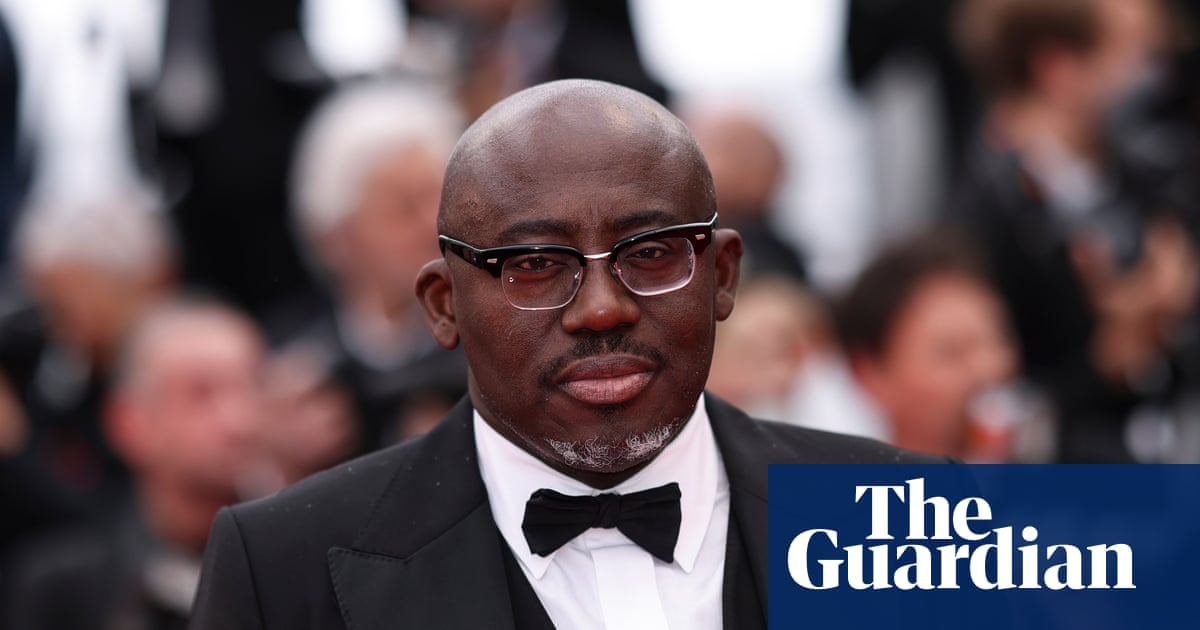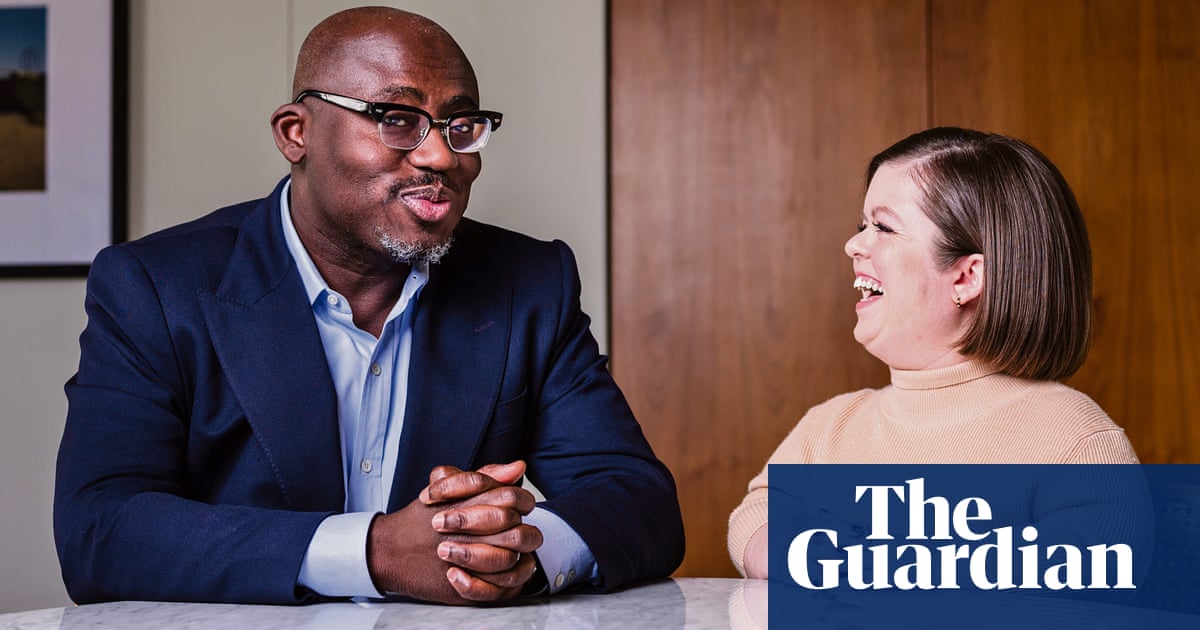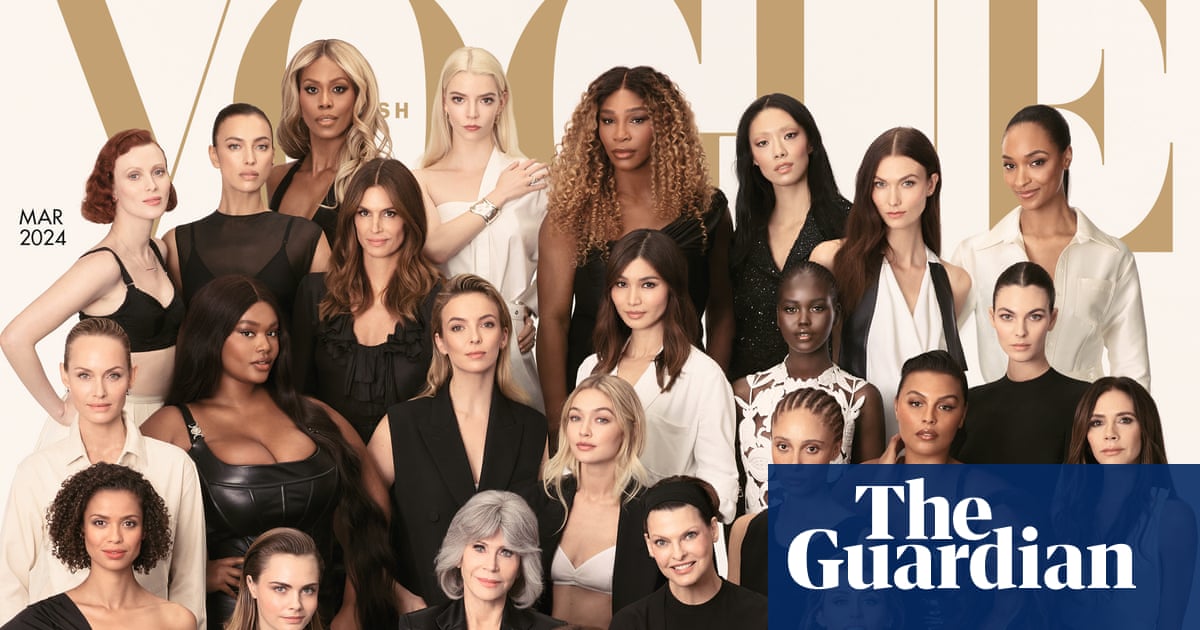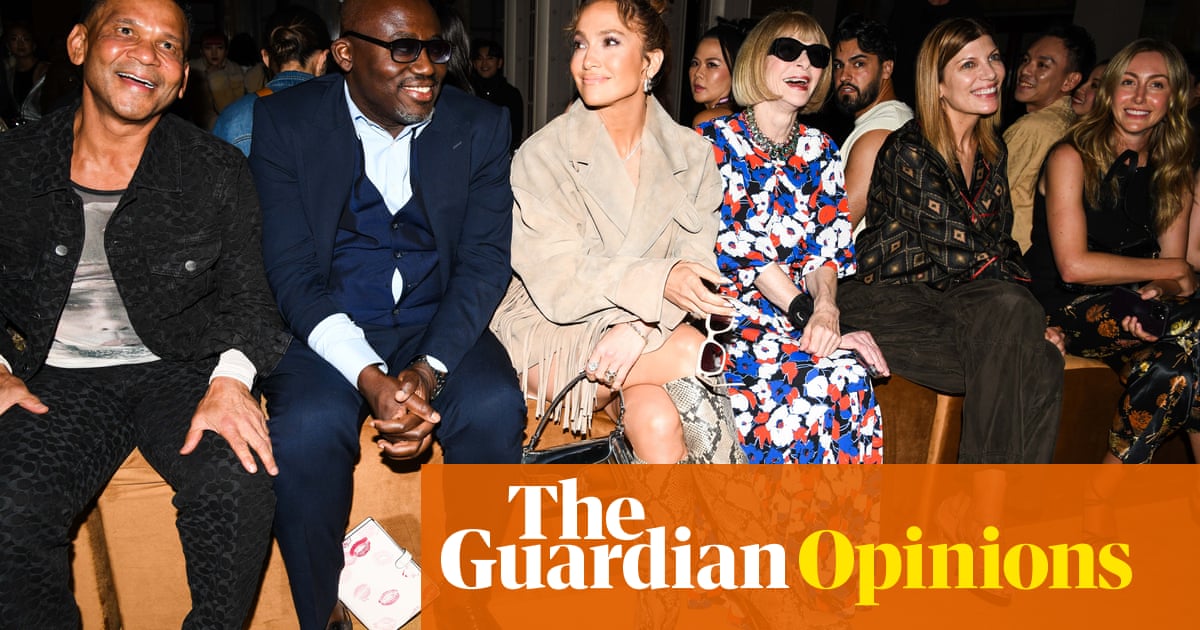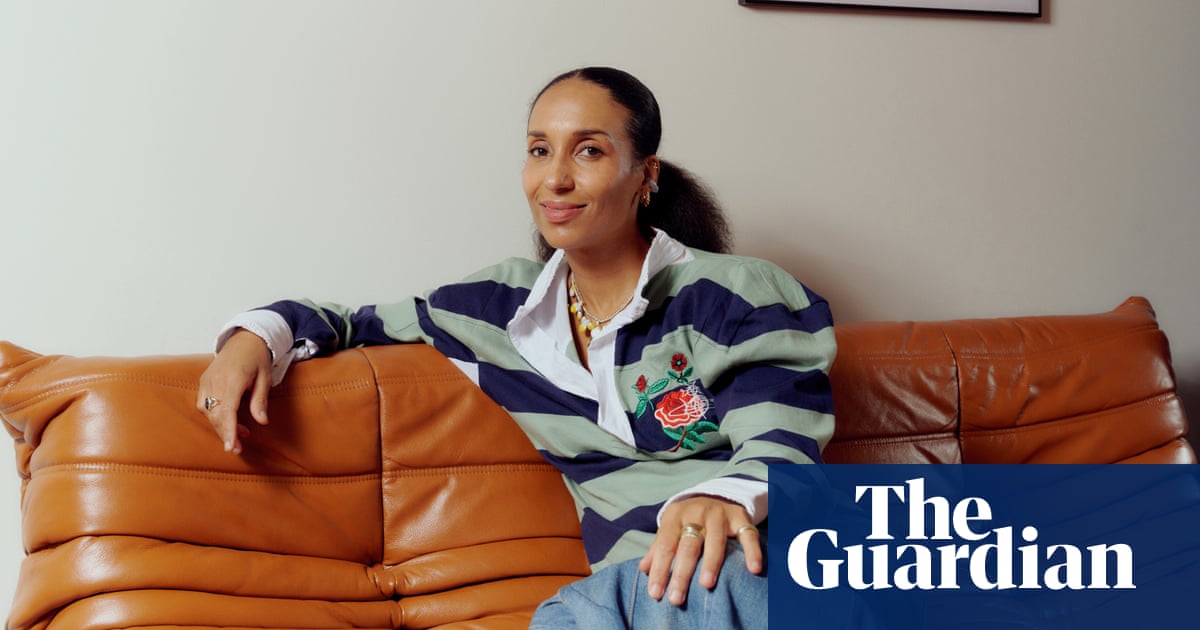
By the time London fashion week had begun last weekend, it was already the industry’s worst kept secret.
But after months of conjecture surrounding who would replace Edward Enninful, the 51-year-old outgoing editor of British Vogue, Condé Nast has told the Guardian that London-born journalist Chioma Nnadi will take over the role on 9 October.
Once in post, Nnadi, currently editor of the US edition’s website, will be known as head of editorial content, rather than editor-in-chief. She will also become the first Black woman to edit the storied fashion magazine.
“Is there pressure? Yeah, there’s definitely pressure – it’s Vogue,” Nnadi said while speaking from her home in New York.
“It still means something to be in Vogue, it still has authority. [And there’s pressure] because of Edward. He broke new ground. It’s more than being part of a magazine – it’s part of the cultural conversation.”
The announcement followed a weekend of fashion shows that were partly eclipsed by Vogue World, the successful arts/fashion event engineered by the magazine, which was also dubbed by attendees as “Anna Wintour’s flex”. Perhaps sensibly, Nnadi remained in New York so as not to stoke rumours.
The new job title is not insignificant. Nnadi said her focus will be on “digital storytelling” and keeping Vogue “interactive” with readers – but it is also part of a shift that has seen the starry editors of Vogue’s European editions, who once filled the front rows, replaced by global heads after Condé Nast’s 2020 company-wide restructuring.
As such, Nnadi is likely to work alongside Wintour, who has described Nnadi as a “beloved colleague” who will focus on “music and culture” as much as fashion. For her part, Nnadi has credited Wintour with “bringing Vogue into the future”.
Speaking after Vogue World, she added: “Working under Anna, you get a sense of what’s going to be next. I haven’t checked my email but she’s probably on to the next thing already.”
Born to a Swiss-German nurse mother and a Nigerian father who came to the UK to study in the 1960s, Nnadi grew up in central London, working at indie magazines such as Trace and the Fader, with which she credits her “scrappy” nature, before a stint at London’s Evening Standard.
In 2010, she moved to New York to work for Vogue, where Nnadi currently runs the US site, co-hosts the podcast and is one of the magazine’s star writers, and the living embodiment of Wintour’s mantra: “All platforms – all the time”.
She said she expected comparisons to be made between her and Enninful, but offered an assessment of their differences: “As a Black woman, but also as a biracial woman, how I view the world is also how I see it – through a lens that is influenced by my background, by where I live, and by having parents from different cultures and having to move between these cultures.
“Things have changed a lot. When I started out, there was one other Black person working in the building, and we both went to the same college. It wasn’t the same place it is now. Obviously matters of diversity and inclusion should always be on the agenda, but it feels like more of an open conversation now, and that feels to me like progress,” she said.
Nnadi is an editor and writer while Enninful came through styling. She said she recognises Vogue is first and foremost a fashion magazine, but felt that “the impulse is the same, regardless of whether you style or write. Edward had that instinct, even though his background is different to mine. But the question will always be, how do we capture the zeitgeist. It’s important to think about who is telling the story, and whose story we are telling.”
Enninful announced he would be leaving Vogue after the March 2024 issue hits newsstands. His departure came as a shock after a successful but brief six-year tenure as both its first male and first Black editor, during which he was praised for featuring people of all skin colours, body shapes and backgrounds. Enninful plans to stay on at Condé Nast in an advisory role, and will cross over with Nnadi in the immediate future. “[The British office] are already my colleagues because of the way we work globally,” she said, adding they already have three meetings a week.
Nnadi is well versed on the criticism levelled against the magazine, particularly its often out-of-touch fashion price point. “When I started at Vogue it was about having the latest new thing,” she said. “Now, there’s a sense of archival fashion being just as important. I grew up going to Portobello Road every single weekend looking for vintage clothing. That was before it was super cool to do it.” Will this devil wear vintage? “I always stop by Rellik when I’m in London, and go down Ladbroke Grove on a Friday, so most of my wardrobe now is resale and vintage”, she said. “Of course as I progressed, I was able to afford new things too,” she said. One of her most prized possessions, though, is an Edwardian dress.
Nnadi said she was still house hunting in London, and planned to stay with family until she found somewhere to live. Despite being abroad for over a decade, she said she is still a Londoner at heart, although since discovering her friends had moved to east London, admitted “the axis of cool has definitely changed since I was here. It’s a homecoming, but clearly a moment to learn too.”




